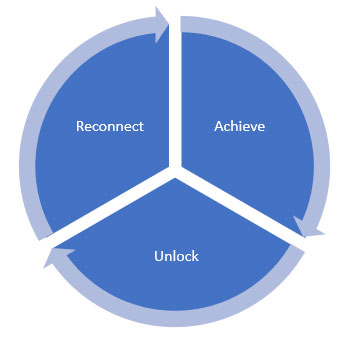Curriculum
Our Curriculum
We work hard to make sure our curriculum is shaped around each young person, always putting their needs and interests first. Everything we plan is designed to be relevant and meaningful to their lives, both now and in the future. By listening to their voice and adapting along the way, we help them grow, learn, and succeed in a way that feels right for them.
We ensure our curriculum:
- Engaging, exciting and relevant
- Bespoke, flexible and person centred
- Broad, balanced and ambitious
- Clear statements of Intent, implementation and impact
- Prepares for an independent, fulfilled adult life
Why do we do what we do?
Our curriculum is shaped by our ethos: to rebuild and re-ignite a love of learning. It reflects the interests, abilities, and experiences of each young person, offering opportunities to re-engage, re-inspire, and re-enthuse.
Alongside core academics, we deliver a rich SMSC and Personal Development Curriculum, personalised to pupils and classes. Through creative opportunities, self-expression, and celebration of learning, we capture pupil voice, foster independence, and encourage confidence.
Our curriculum is ambitious, broad, balanced, and inclusive, continually evolving to meet all needs. We celebrate diversity, ensure progression in skills and knowledge, and provide tailored pathways across all key stages—from strong foundations in literacy to nationally recognised qualifications.
Beyond the classroom, we enrich learning with community links, new experiences, and opportunities that support every pupil’s academic, social, and emotional growth.
Implementation
Implementing a core curriculum effectively requires a strategic approach that can be broken down into three key phases: Achieve, Unlock, and Reconnect. Each phase plays a crucial role in ensuring that the curriculum meets educational goals, supports student learning, and adapts to the needs of the community.
- The Reconnect phase emphasises continuous improvement and ensuring that the curriculum remains relevant and effective.
- The Achieve phase focuses on setting and reaching the educational goals that the curriculum aims to address.
- The Unlock phase is about empowering educators and students to fully engage with and benefit from the curriculum.

Features of the Key Stage 3 Curriculum (Years 7-9)
All students follow a programme of personal, social, health citizenship and enterprise education (PSHCE) that includes elements of British values, sex and relationships, drugs, political, careers and personal finance education. This is taught by the student’s tutor, with specialist inputs where appropriate.
All students follow the statutory programmes of religious and physical education.
In addition to a core of mathematics, science and English, all students follow courses within the Enriched Curriculum in art, design & technology, the performing arts, computing and humanities.
All students who need additional support in their numeracy and literacy skills to close the gap with their peers receive up to two additional periods per fortnight in additional English and/or maths in addition to their standard English and Maths Curriculum.
Features of the Key Stage 4 Curriculum (Years 10-11)
- All students follow a programme of personal, social, health citizenship and enterprise education (PSHCE) under the umbrella of ‘Life Skills’. This includes elements of British values, sex and relationships, drugs, political, religious, careers and personal finance education. This is taught by the student’s tutor, with specialist inputs where appropriate.
- In Years 10 and 11 all students follow a core curriculum for all which includes; English language, English literature, combined science, mathematics, physical education, PSHCE and religious education
- Students have the opportunity to opt for courses in art, business, computing, design & technology, humanities, media, modern languages and performing arts.
In Key Stage 4 students can opt to study science as separate disciplines.
- The taught curriculum in all years is enhanced by a full extra-curricular programme and enrichment activities
- Students who have not achieved a grade 4 or better in GCSE in English or maths are offered to continue to study these subjects (GCSE/Functional Skills)
- All students are offered a bespoke careers pathway from KS3-4
